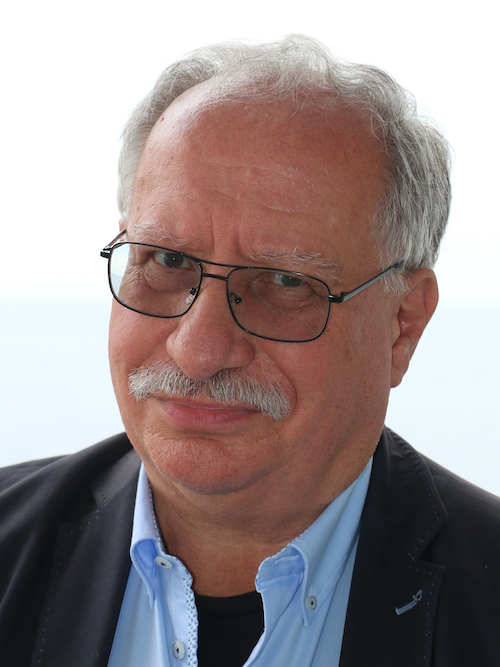
Stay tuned for important updates regarding ICL2026! Key dates, including submission deadlines, registration periods, and program announcements, are shown in the table. Nevertheless, it’s essential to keep an eye on our communications to ensure you don’t miss any critical information about the conference.
| Date | Activity | |
|---|---|---|
| 01 Apr 2026 | Submission of: (i) structured abstracts (for full/short papers) for the conference (ii) Special Session proposals | |
| 15 Apr 2026 | Notification of acceptance for abstracts for the conference Special Sessions notification and announcement | |
| 15 May 2026 | Submission of: (i) complete papers for all submission types (ii) proposals for round tables, workshops, tutorials | |
| 15 Jun 2026 | Notification of acceptance | |
| 15 Jul 2026 | Camera-ready due/Final upload | |
| 15 Jul 2026 | Author registration | |
| 30 Sep 2026 | ICL2026 Conference Opening | |

Everyone is familiar with mental time travel. What would have happened if I had ...? What will happen if I seize the opportunity and ...? Mental time travel has a significant influence on the development of the human brain. Understanding mental time travel as a form of knowledge representation is one of the more recent achievements in cognitive science. It is a challenge for research and development in the field of educational technologies to make use of mental time travel. The biggest challenge is to make time travel a tangible experience in educational applications. This overlaps with digital storytelling for educational purposes. Storytelling is an ancient VR technology. Digital games provide the methodological and operational framework for not only having stories told to learners, but also contributing to shape them. Storytelling is transformed into story engagement. In a time travel prevention game, learners experience the opportunity to impact fate. Experienced stories of success are a pleasure to remember and worth telling. The remembered journey through time is a form of knowledge representation, affective and, thus effective and sustainable.
Klaus Peter Jantke is a distinguished German mathematician, computer scientist, University teacher, and academic researcher specialising in artificial intelligence, educational technology, game studies, and gamification. Born in East Berlin in 1951, he completed his Abitur in 1970 and studied mathematics at Humboldt University in Berlin, where he earned a diploma with a thesis awarded the Karl-Weierstraß Prize in 1976. He attained his PhD in 1979 with a thesis on the performance and complexity of universal Methods for recognizing general-recursive functions, earning the Humboldt Prize from Humboldt University. Jantke's academic career includes becoming a full professor at the age of 35 in theoretical computer science and artificial intelligence at Technische Hochschule Leipzig. He has taught at several international universities and contributed to numerous research projects funded by German federal ministries, NATO, and other institutions. Notably, he established the competence centre for e-learning at the German Research Centre for Artificial Intelligence and was Germany’s first professor of computer games in 2006. His leadership roles include heading multimedia applications and children’s media departments at various institutions like Technische Universität Ilmenau and Fraunhofer Institute for Digital Media Technology. He also founded the German Games Master Class and has been a prominent keynote speaker at international conferences on digital games and virtual crimes. Since 2016, he has served as Chief Scientific Officer at ADICOM and consulted for the Sino-German Industrial Design Centre for economic cooperation development.
Will be available in time. Please continue to check this website for updates.
Will be available in time. Please continue to check this website for updates.
Will be available in time. Please continue to check this website for updates.
| ICL2026 – Author and Participant Registration | Early Bird Fee until 15 Jul 2026 | Standard Fee until 1 September 2026 | Late Fee after 1 September 2026 |
|---|---|---|---|
| Author – Regular1,5 | 570 EUR | N/A | N/A |
| Author – Members of IAOE, IGIP, IEEE & IELA1,5 | 520 EUR | N/A | N/A |
| Author – Low-income Countries1,2,5 and Ukraine | 370 EUR | N/A | N/A |
| Author – Student with ID1,3,4,5 | 370 EUR | N/A | N/A |
| Participant – Regular5 | 470 EUR | 490 EUR | 530 EUR |
| Participant – Low-income Countries2,5 and Ukraine | 270 EUR | 290 EUR | 330 EUR |
| Participant – Student with ID4,5 | 270 EUR | 290 EUR | 330 EUR |
| Options | |||
| Additional Paper (max 1) | 190 EUR | N/A | N/A |
| Gala Dinner (for on-site participation only) | tbd EUR | ||
| Accompanying Person5 | 170 EUR | ||
| Pre-conference Special Workshops6 | 50 EUR | ||
Only one paper is included with the registration. For more papers (max 1 additional ones, i.e. 2 in total), please select "Additional papers".
Will be available in time. Please continue to check this website for updates.
Will be available in time. Please continue to check this website for updates.
Copyright: ICL, Hosting: International Association of Online Engineering (IAOE), Website: Sebastian Schreiter / Agencia 609, DuocUC